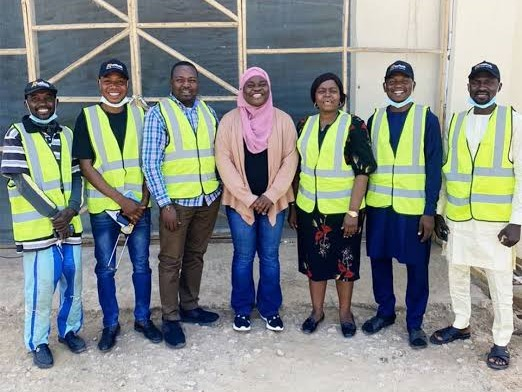In Nigeria, agriculture employs around 70% of the population, yet the situation for smallholder farmers needs to be more encouraging. Many farmers work tirelessly under the scorching sun, but their efforts often yield minimal rewards due to outdated farming methods, limited resource access, and exploitative middlemen. As a result, countless families remain trapped in poverty and face food insecurity. Rahmah Aderinoye understood the farmers’ plight and saw an opportunity to improve things. Thus, she co-founded Rashak Farms in 2016.
Today, she has created a system that empowers farmers with the tools, training, and support they need to scale in agriculture. Rashak Farms now helps over 12,000 smallholder farmers across the country.
How it all began
Growing up in Nigeria, Aderinoye saw the struggles of local farmers who worked tirelessly yet could barely make ends meet. These farmers faced numerous challenges, from low yields due to poor-quality seeds to financial exploitation by intermediaries who bought their produce for low prices. She saw how these inefficiencies in the agricultural system trapped farmers in poverty and affected food security across the nation.
These early observations instilled in her a sense of purpose, leading her to create a better system that would value farmers as equal partners in the agricultural value chain rather than mere labourers.
As Aderinoye grew older, her interest in social change deepened. Her education and professional experiences, including her time with the United Nations and recognition as a Resolution Project Fellow, gave her better exposure and reinforced her belief in creating equitable opportunities for marginalised groups, especially in rural communities.
Her recognition as a Resolution Project Fellow in 2013 birthed the idea of Rashak Farms. This gave her the platform, resources, and mentorship to explore different ways to address rising food costs and the challenges smallholder farmers face. With this, she developed a sustainable model for farming communities in Nigeria.
Eventually, in 2016, Rahmah Aderinoye founded Rashak Farms. The company was built to empower farmers, many of whom are women and people with disabilities, by addressing their challenges.
Rashak Farms is now an agro-allied social enterprise with a vision to narrow the gap between smallholder farmers and agro-processors across Africa while promoting sustainability and equity. They give farmers interest-free loans, quality seeds, fertilisers, training, and market access. The initiative empowers smallholder, female and disabled farmers to deliver a greener, food-secure future. They aim to create an ecosystem where farmers can achieve financial independence and contribute meaningfully to the agricultural value chain. Some of their
Rashak Farms’ work directly contributes to several United Nations Sustainable Development Goals (SDGs): SDG 1: No Poverty, SDG 2: Zero Hunger, and SDG 5: Gender Equality.
Since its inception, it has empowered over 12,000 smallholder farmers across multiple states in Nigeria. It has also impacted 1,502 female farmers and 3,397 farmers living with disabilities.
By providing high-quality seeds, fertilisers, and technical training, they have directly improved the productivity and income of thousands of farmers. Through Rashak Farms, Aderinoye has already started to reshape agriculture for local communities.



